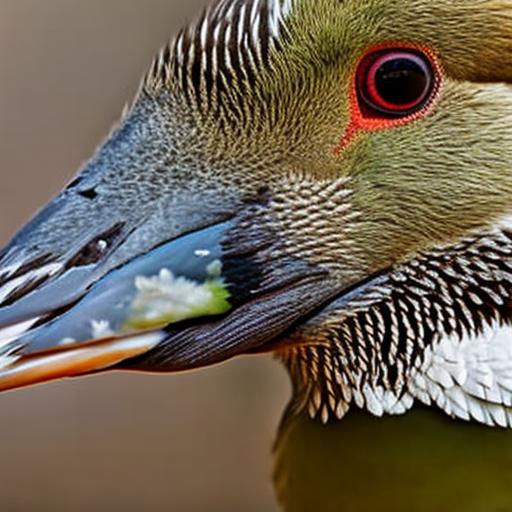Geese have a long history of being domesticated animals, dating back thousands of years. They were originally domesticated for their meat, feathers, and eggs, but over time, people began to keep geese as pets as well. Geese are known for their loyalty and protective nature, making them excellent companions and guardians.
Keeping geese as pets has many benefits. They are intelligent animals that can form strong bonds with their owners. Geese are also highly social creatures and enjoy the company of other geese or even other animals. They can provide hours of entertainment with their playful antics and curious nature. Additionally, geese can be trained to perform simple tasks and tricks, making them a unique and interactive pet.
Key Takeaways
- Keeping geese as pets can be a rewarding experience for those who are willing to put in the effort.
- Understanding the behavior and needs of geese is crucial to providing them with a suitable living environment.
- Choosing the right breed of geese for your home is important, as different breeds have different temperaments and requirements.
- Preparing a suitable living space for your geese involves providing them with shelter, water, and a safe outdoor area to roam.
- Feeding and nutrition requirements for geese vary depending on their age and activity level, and it’s important to provide them with a balanced diet.
Understanding the behavior and needs of geese
Geese are highly social animals that thrive in the company of others. They form strong bonds with their flock mates and can become stressed or lonely if kept alone. It is important to provide geese with companionship, whether it be other geese or other animals.
Geese have basic needs that must be met in order for them to thrive. These include access to fresh water for drinking and bathing, a balanced diet of nutritious food, and a safe and comfortable living space. Geese also require regular exercise to maintain their physical health.
There are some common misconceptions about geese that should be addressed. One misconception is that geese are aggressive animals. While they can be protective of their territory and flock, geese are generally docile creatures that will only become aggressive if they feel threatened or if they are protecting their young.
Choosing the right breed of geese for your home
There are several popular breeds of geese that make great pets. Some common breeds include Toulouse, Embden, and Chinese geese. Each breed has its own unique characteristics and requirements, so it is important to research and choose a breed that is suitable for your home and lifestyle.
When choosing a breed of geese, there are several factors to consider. These include the size of the breed, the noise level they produce, and their temperament. Some breeds are larger and more vocal than others, so it is important to choose a breed that will fit well with your living situation.
Preparing a suitable living space for your geese
Geese require a suitable living space that provides them with shelter, protection from predators, and enough room to move around and exercise. A secure and spacious enclosure is essential for keeping geese safe and happy.
When creating a living space for your geese, it is important to provide them with a shelter that protects them from the elements. This can be a simple shed or coop that provides shade and protection from rain and wind. The enclosure should also have a secure fence or barrier to keep predators out and geese in.
Feeding and nutrition requirements for geese
Geese have specific dietary needs that must be met in order for them to stay healthy. They require a balanced diet that includes a variety of foods to ensure they receive all the necessary nutrients.
Geese should be fed a diet that consists of both commercial waterfowl feed and fresh fruits and vegetables. They also require access to fresh water at all times for drinking and bathing.
It is important to feed geese the appropriate amount of food to prevent overfeeding or underfeeding. Overfeeding can lead to obesity and health problems, while underfeeding can result in malnutrition.
Health and wellness considerations for geese

Like any pet, geese can experience health issues that require attention and care. It is important to be aware of common health issues in geese and take preventative measures to keep them healthy.
Some common health issues in geese include respiratory infections, parasites, and foot problems. Regular veterinary care and preventative measures such as vaccinations and parasite control can help keep geese healthy.
It is important to seek veterinary care for your geese if you notice any signs of illness or injury. Early intervention can prevent further complications and improve the chances of a full recovery.
Training and socializing your pet geese
Training and socializing geese is an important part of keeping them as pets. Geese are intelligent animals that can be trained to perform simple tasks and tricks.
Training geese requires patience, consistency, and positive reinforcement. It is important to start training at a young age and to use rewards such as treats or praise to reinforce desired behaviors.
Socializing geese is also important for their overall well-being. They should be exposed to different people, animals, and environments from a young age to help them become well-adjusted and friendly pets.
Managing noise and waste from geese in a residential area
Geese can be noisy animals, especially during breeding season or when they feel threatened. It is important to take steps to minimize noise from geese if you live in a residential area.
One way to minimize noise from geese is to provide them with a suitable living space that allows them enough room to move around and exercise. This can help prevent boredom and excessive vocalization.
Dealing with complaints from neighbors about noise or waste from geese can be challenging. It is important to address any concerns in a respectful and proactive manner. This may involve implementing measures such as sound barriers or cleaning up waste regularly.
Legal considerations for keeping geese as pets
Before keeping geese as pets, it is important to research and understand the local laws and regulations related to keeping these animals. Some areas may have restrictions on the number of geese you can keep or require permits or licenses.
It is important to comply with all local laws and regulations related to keeping geese as pets. Failure to do so can result in fines or other legal consequences.
The joys and challenges of raising geese as pets
Raising geese as pets can be a rewarding experience, but it also comes with its challenges. Geese can provide companionship, entertainment, and even protection, but they also require time, effort, and resources to care for properly.
One of the joys of raising geese as pets is the bond that can be formed with these intelligent and loyal animals. They can become part of the family and provide endless entertainment with their playful antics.
However, raising geese as pets also comes with challenges. They require a significant amount of space and can be messy animals. They also have specific dietary and health needs that must be met.
In conclusion, keeping geese as pets can be a rewarding experience for those who are willing to put in the time and effort to care for these animals properly. Geese are intelligent, social creatures that can form strong bonds with their owners. They require a suitable living space, a balanced diet, and regular veterinary care to stay healthy. While there are challenges associated with raising geese as pets, the joys and benefits far outweigh them for many people.
If you’re considering keeping geese as pets, you might also be interested in learning about how many chickens you need for a family of four. Poultry Wizard has a helpful article that provides insights into the ideal number of chickens to keep for a family of four, taking into account factors such as egg production and consumption. Check out the article here to ensure you have the right flock size for your household.
Meet Walter, the feathered-friend fanatic of Florida! Nestled in the sunshine state, Walter struts through life with his feathered companions, clucking his way to happiness. With a coop that’s fancier than a five-star hotel, he’s the Don Juan of the chicken world. When he’s not teaching his hens to do the cha-cha, you’ll find him in a heated debate with his prized rooster, Sir Clucks-a-Lot. Walter’s poultry passion is no yolk; he’s the sunny-side-up guy you never knew you needed in your flock of friends!







